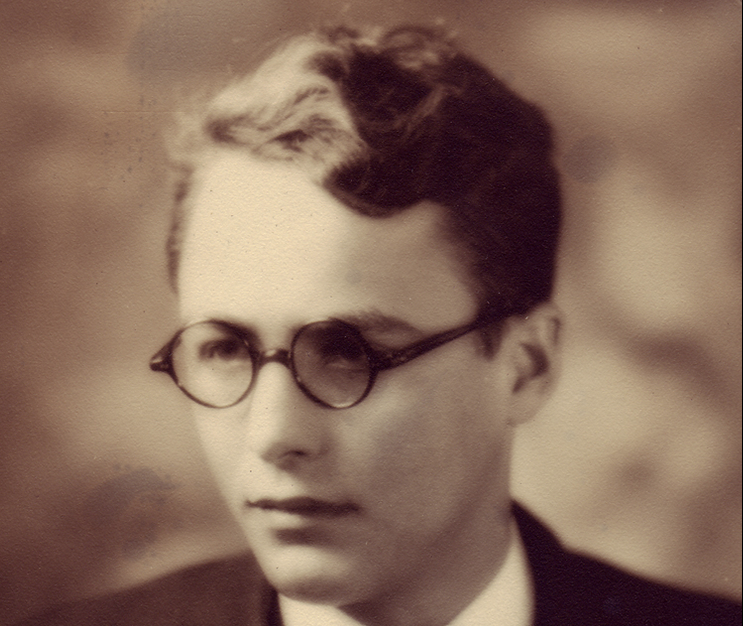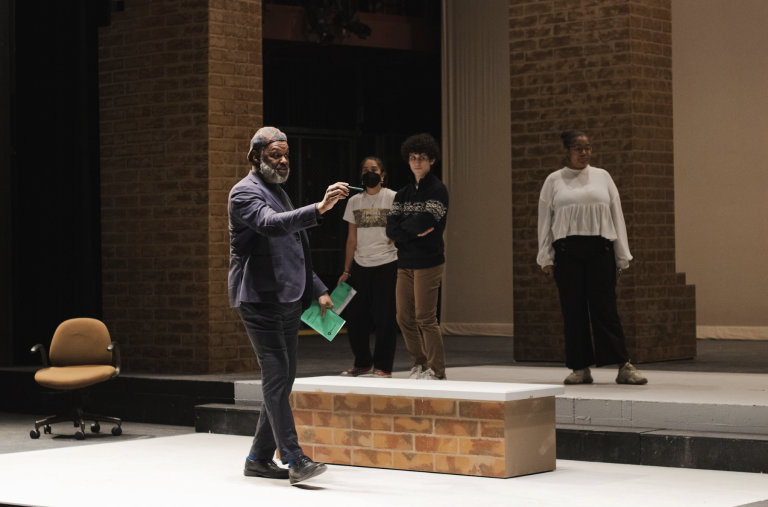A&E EDITOR
One of the first things you have to know about Hyam Plutzik is that he graduated from Trinity College. This is important because it strikes a chord in his poetry, and affects its tone. But there’s a great deal more to learn about him, too. If you’re not familiar with Mr. Plutzik’s work, perhaps it’s because Plutzik’s anthology is reasonably small, though lauded by three Pulitzer Prize nominations. It could also be because one of his essential writings, recently published by actions of the Watkinson Library, had been hidden away in the silent stacks there for just about 70 years.
Plutzik was a young man and something of a wanderer-poet when he felt the urge to reconnect with an inspirational Trinity professor several years after leaving the college. It would seem that Plutzik’s relationship with this professor, a man named Odell Shepard (himself a Pulitzer Prize winner) was more of a poet’s projection- Shepard’s response to his former student’s writings was a mere three pages to match Plutzik’s 72, and was never sent.
So it stayed with the Professor Shepard’’s writings and papers, lost in one of the deep places of the Watkinson, totally undiscovered for the better part of the twentieth century. There the work stayed until 2011, when the original letters were found and studied by scholars, later to be exhibited at the Watkinson. Now, Letter from a Young Poet is being published for the first time.
There is an element of Irony to this, as Hyam Plutzik’s relationship with Trinity was flawed at best. Upon hearing of Plutzik’s initial failure to complete his graduate studies at Yale, Trinity’s President Ogilby called the Poet “a disgrace to Trinity College.” It’s also fair to say that Plutzik’s time at Trinity was marred by the sense of alienation he felt throughout much of his young life.
But this is not to say that he was not full of hope for the future. “I had dreams,” he writes. “If I have them now I refuse to admit it, for anyone who acknowledges their dreams too directly challenge the fates to do their worst, and they always do it.”
Every part of Plutzik’s letter is written in this style. His writing is laced with a sense of scholarly discussion, but it also rises into poetry at every opportunity. It can also be laughably funny, and in a few great scenes, it emanates a stillness that the writer clearly adored.
Letter from a Young Poet is also of special historical significance: Plutzik was interrupted in the writing of his letter by news of the attack at Pearl Harbor, and of the United States’ involvement in World War II. Ruminating on his role as a Jew and an American, the Poet reflects solemnly on the grim shadow of Nazism and the nature of war.
The story related by Plutzik is absorbing, and is short enough that it can be read in a single afternoon. His life after Trinity as an English Major in 1930’s New York is full of anecdotes and stories about the perspective of a writer, and the delicate cogs and gears of his mind never fail to entertain. Plutzik was the kind of man who treated life as a performance for his entertainment. He was so enthralled in his writer’s vision of the world that he could rarely muster the strength to intervene in the story and take control. Plutzik told what he saw, and pursued mystical moments and holy places in time in order to write about them.
Hyam Plutzik’s writing is touched with empathy- he describes thoughts and feelings that are difficult to grasp with specificity, and makes them seem perfectly commonplace. And there’s something inherently likable about seeing the world from the perspective of someone who is happiest when he’s peacefully unoccupied. One of Plutzik’s most joyful passages finds him describing the plot of Hamlet to a gravedigger in rural Connecticut, and chuckling over the reference that he alone understood. “So I sat there, telling this gravedigger of his famed predecessor and of all of the strange and ghostly things that happened between the changing of the guard at the royal castle and the death of the Prince.”
The Poet’s devotion to and friendship with the character of Hamlet would later contribute to the writing of Horatio, an essay on the life of Hamlet’s best friend.
Plutzik’s life moved in rhythms that were out of sync with those of each one of his contemporaries. This is at the heart of his writing: the distance he felt between himself and the rest of the world made him thoughtful and introverted.
“I am by nature a mystic, and when a mystic talks he must try to understand the world he sees by using the language of the superficial world of the senses… He must couch his thoughts in the language of vision or abstraction; and in the end people don’t understand him anyway.”
Though rarely mentioned and likely unknown to the majority of today’s Trinity students, Hyam Plutzik deserves a place among the ranks of Trinity’s most fascinating graduates. His story did not end with his untimely death at fifty, though this piece of writing waited for longer than Plutzik’s own fifty years to see the light. Now that the letter is able to be read and circulated, it seems that the story of this lonely Jewish poet can finally come full circle. The newly published Letter from a Young Poet offers more than just a rapturous read. It also revives the voice of a Trinity alumnus who deserves to be heard and enjoyed.





+ There are no comments
Add yours